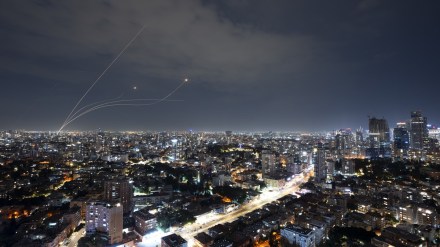The conflict between Israel and Palestinian militants began when Gaza’s Hamas group launched a surprise attack on October 7, 2023. It resulted in a significant number of civilian casualties and allegations of war crimes on both sides. International rules governing armed conflicts apply to all parties involved.
Geneva Conventions
These rules stem from the 1949 Geneva Conventions, accepted by all United Nations member states. They regulate the treatment of civilians, soldiers, and prisoners of war, collectively known as the “Law of Armed Conflict” or “International Humanitarian Law.” This law applies to government forces and organized non-state armed groups, including Hamas militants.
Actions that could violate war crimes law include deliberately targeting civilians, launching indiscriminate rocket attacks, and taking civilians as hostages. These actions are explicitly prohibited by the Geneva Conventions. Israel’s response could also be subject to a war crimes investigation.
Hamas entered Israeli communities, resulting in the death of many civilians. In response, Israel laid siege to Gaza, which has a population of 2.3 million, and conducted a powerful bombing campaign, causing widespread destruction. Israeli ground forces later entered Gaza with the aim of eliminating Hamas, and air strikes continued.
Following aerial bombings of Gaza’s Jabalia refugee camp, the UN High Commissioner for Human Rights expressed concern that Israel’s strikes may be disproportionate and could amount to war crimes.
The Geneva Conventions have the primary goal of protecting civilians during wartime. They strictly forbid the direct targeting of civilians and civilian objects.
Combatants in armed conflicts can be members of state armed forces, military and volunteer forces, or non-state armed groups. Intentionally attacking personnel and material involved in humanitarian assistance is considered a separate war crime, provided that those providing the aid are civilians.
What is a war crime?
A siege can be considered a war crime if it primarily targets civilians rather than serving as a legitimate means to undermine the military capabilities of a group like Hamas or if it is found to be disproportionate.
International Criminal Court (ICC) prosecutor Karim Khan has warned that the Israeli army must demonstrate that “any attack affecting innocent civilians or protected objects,” such as hospitals, churches, schools, or mosques, adheres to the laws of armed conflict.
Under these laws, civilian objects can become legitimate military targets in specific instances if they effectively contribute to military action. The responsibility for proving the loss of protective status rests with those who launch the attack.
Israel claims that Hamas fighters use residential neighbourhoods and civilian buildings as cover for their command posts and weapons.
Even when a combatant attacks legitimate military targets, the assault must be proportional, meaning it should not result in excessive civilian casualties or damage to civilian objects.
The Geneva Conventions and rulings by international tribunals emphasize that proportionality is not a matter of comparing the number of civilian casualties on each side, but rather ensuring that such casualties are proportionate to the military advantage expected from a specific attack.
In terms of trying alleged war crimes, local courts in Israel and the Palestinian territories have the primary jurisdiction. If alleged perpetrators are not brought to justice locally, the International Criminal Court (ICC) in The Hague is the only international legal body capable of bringing charges.
The ICC’s founding Rome Statute grants it the legal authority to investigate alleged crimes on the territory of its member states or by their nationals when domestic authorities are “unwilling or unable” to do so.”
